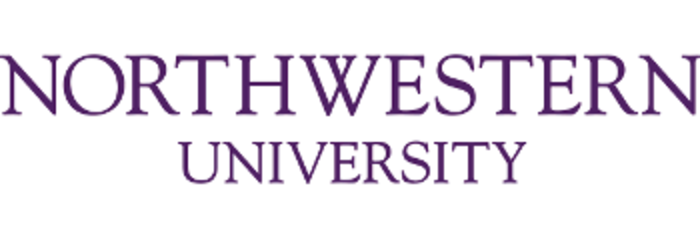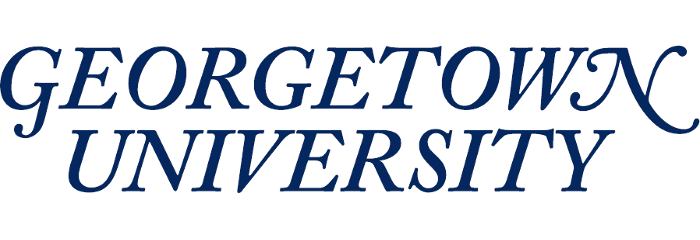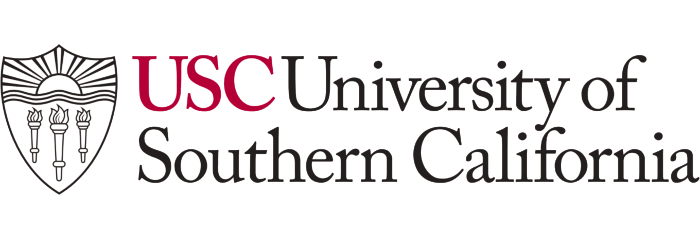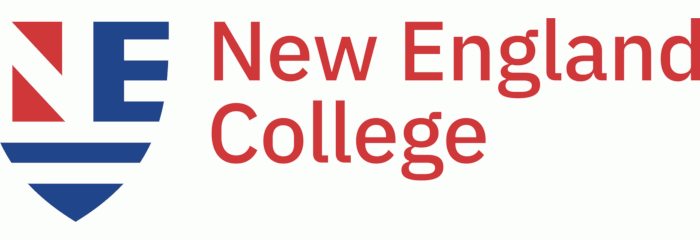2023 Best Online Master's Degrees in Healthcare Management
ON THIS PAGE
Online Programs Common Courses Specializations Degree Cost Choosing a Program Career Options FAQsHealthcare professionals may be eager to pursue career advancement after several years of working in the industry. An online master's degree in healthcare management can help you develop the skills to lead teams and implement programs across diverse healthcare environments. Similarly, an online MBA in healthcare management may be of interest if you're considering a career in business management and administration.
We've identified the schools on our list based on each program's salary score so you can make the right decision based on your career goals. View our methodology for more details about our list, or learn more about OnlineU.
Learn more about how we make money. ">ADVERTISEMENT
Online Healthcare Management Master's Degrees You May Be Interested In

Arizona State University

Southern New Hampshire University Online
Annual Tuition: $11,286
2 Programs (view all)
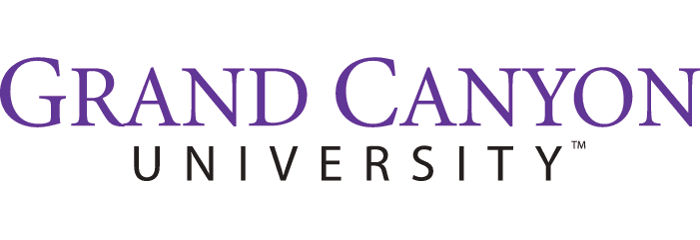
Grand Canyon University
Annual Tuition: $11,074
6 Programs (view all)
2023 Best Online Master's Degrees in Healthcare Management
| Rank | School | Salary Score | Median Starting Salary |
|---|---|---|---|
| Northwestern University | $129,419 | ||
| University of Pennsylvania | 100 | $169,238 | |
| Georgetown University | 99 | $114,677 | |
| University of Southern California | 99 | $114,239 | |
| New England College | 94 | $96,183 | |
| Ohio University - Main Campus | 89 | $90,050 | |
| Western Governors University | 88 | $89,288 | |
| University of Alabama at Birmingham | 88 | $89,298 | |
| The George Washington University | 85 | $86,952 | |
| Columbia University in the City of New York | 85 | $86,682 |
2023 Online Colleges Offering Master's Degrees
Ranking Details
#1 Northwestern University
- Salary Score: 100
- Median Starting Salary: $129,419
- Locations: Evanston (IL)
- Accreditation: HLC
Northwestern University is a private, nonprofit institution offering an online Master of Science in Regulatory Compliance - Healthcare Compliance. Graduation requires completing 11 units/courses, which may take full-time students up to two years.
Northwestern uses Canvas as its learning management system (LMS) for online course content and instruction delivery. Classes are generally asynchronous, though some synchronous classwork may be encouraged to foster engagement and interaction. Distance learners in the online master's degree in healthcare compliance take courses such as Healthcare Billing Models and Systems, Healthcare Programs and Enforcement, and Health Care Operations. Students choose to complete a thesis or capstone project to graduate. Online program curricula can help prepare students for leadership positions in the healthcare industry after graduation.
#2 University of Pennsylvania
- Salary Score: 100
- Median Starting Salary: $169,238
- Locations: Philadelphia (PA)
- Accreditation: MSCHE
The University of Pennsylvania (Penn) is a private, nonprofit institution offering an online Master of Health Care Innovation for mid-career health professionals seeking to improve healthcare delivery. Graduating requires completing 11 units of coursework, which may take 20 months, though a three-year extended track option is also available. Penn requires online students to attend two on-campus seminars each August.
Penn delivers its online curriculum via the LMS Canvas. Students in the online master's degree in health care innovation program complete a range of courses, such as Evaluating Health Policy and Programs, Health Economics, Leading Change in Healthcare, and Translating Ideas into Outcomes. Online students must also complete two intensive labs to apply and practice the skills they learn.
#3 Georgetown University
- Salary Score: 99
- Median Starting Salary: $114,677
- Locations: Washington D.C.
- Accreditation: MSCHE
Georgetown University is a private, nonprofit, and Catholic-based institution offering an online Executive Master's in Clinical Quality, Safety, and Leadership to help prepare students for leadership roles in healthcare. They must choose between two tracks: (1) Quality and Safety or (2) Human Factors. While most coursework is online, students must also attend a one-time, three-day onsite residency to meet graduation requirements. This 32-credit program takes full-time students approximately 16 months to complete.
Georgetown's online students use Canvas to participate in class and complete assignments asynchronously (i.e., at their own pace). Courses in this online healthcare program include Creating and Leading Sustainable Change, Human Factors Core Principles, and Quality Improvement Methods. Additionally, students must complete a capstone project to graduate and present during the final course.
#4 University of Southern California
- Salary Score: 99
- Median Starting Salary: $114,239
- Locations: Los Angeles (CA)
- Accreditation: WSCUC
The University of Southern California (USC) is a private, nonprofit university offering an online Executive Master of Health Administration for experienced clinical or management healthcare professionals. However, two on-campus residencies are required at the program's beginning and end. This 36-unit program generally typically takes full-time students at least two years to complete.
USC uses the Blackboard LMS for its online curriculum delivery. Students in the online health administration program enroll in courses such as Operations Management for Accountability, Information Technology and Patient Engagement, Strategic Management, and Managing and Improving Health. Graduates often pursue roles in senior administrative leadership.
#5 New England College
- Salary Score: 94
- Median Starting Salary: $96,183
- Locations: Henniker (NH)
- Accreditation: NECHE
New England College (NEC) is a private, nonprofit institution offering an online Master of Business Administration - Healthcare Management for working professionals. Graduating requires completing 40 credit hours, which may take full-time students less than two years.
NEC's students access online coursework and instruction via Blackboard. Those in the online MBA in healthcare management enroll in classes such as Quality and Lean for Healthcare, Principles of Health Informatics, and Comparative Healthcare Systems. They must also complete a capstone project in order to graduate. The online business program curriculum with the healthcare management concentration can help students hone their healthcare leadership skills for their current job and future growth.
What Is Healthcare Management?
High-level careers in the healthcare field are sometimes described as "service through management," which is mainly because professionals use their expertise in planning and directing to provide the best quality care for their patients. Serving the community in this way requires excellent managerial skills as well as a deep knowledge of the healthcare industry. These two priorities form the foundation of online master's degree programs in healthcare management and online MBA programs that specialize in healthcare management.
The healthcare industry is filled with doctors, nurses, and other medical practitioners who want to serve others by providing direct patient care. But hospitals and other medical facilities are also business organizations that require careful oversight, which creates the need for trained managers who understand the complexities of the healthcare field. Online master's programs in healthcare management are designed to fill this need.
In these programs, students learn to make sound decisions that allow their organizations to run smoothly and provide high quality care to patients and their families. Courses cover many of the core business topics — accounting, finance, data analysis, leadership, human resource management, and strategy, to name a few — but always viewed through the lens of the healthcare industry. In the process of earning a master's degree, students have the opportunity to develop essential skills, such as critical thinking, problem-solving, collaboration, and communication.
Online Master's in Healthcare Management Degrees
Students interested in earning an advanced degree in healthcare management can opt for a Master of Science in Healthcare Management or a Master of Business Administration (MBA) in Healthcare Management. Applicants who have no prior education or work experience in healthcare or business management may be required to take several prerequisite courses before enrolling in a healthcare management master's program.
For either an MS or MBA, an online master's in healthcare management degree typically requires the completion of 30-36 credit hours. Programs often involve five or six core courses, with the remaining credits taken as elective courses. Many programs end with a capstone project, although a few require a written thesis instead.
Courses in an Online Master's Degree in Healthcare Management
Online master's in healthcare management programs are often an interdisciplinary mix of courses integrating the study of business administration and leadership with knowledge of the healthcare services industry. Some of the more common electives explore subjects such as operations, supply chains, economics, contract negotiation, diagnostics and medical devices, healthcare informatics, and pharmaceuticals.
The following are some of the more common core courses in a healthcare management program:
Accounting for Decision Making
This course reviews many common accounting practices and explores some of the complexities of accounting in healthcare systems. Coursework also reveals how data derived from accounting can be used to make informed business decisions.
Healthcare Systems in the U.S.
Often one of the earliest courses in a program, this class provides a broad overview of healthcare delivery systems in the country. Students learn about healthcare providers, consumers, and insurance companies. They also discover how the government and politics influence healthcare systems.
Strategic Organization and Management
In this course, students look at high-level management issues, such as strategic planning and goal setting. Topics may include change management, team dynamics, and quality initiatives.
Healthcare Management Specializations & Concentrations
By selecting a set of related electives, enrollees may develop an area of specialization within healthcare management. Completing coursework for a concentration this way may set graduates apart from other job candidates and enable them to land specific positions within the healthcare industry.
The following are some of the more popular areas of specialization:
Healthcare Informatics
Information technology is one of the most important aspects of healthcare system operations. Students who want to specialize in managing IT in the healthcare industry can take courses in electronic health records, data analytics, and network systems.
Legal Issues in Healthcare
The healthcare industry is heavily regulated in terms of patient privacy, licensure to practice, insurance practices, and more. A concentration in healthcare law provides students with a thorough understanding of regulations, compliance measures, and other legal issues.
Supply Chain Management
A significant cost factor in overall healthcare management is supply chain management. Courses in this concentration cover the most cost effective and efficient means for purchasing, logistics, and quality assurance.
Quality Improvement
Some students may want to focus on improving the quality of healthcare systems. For this concentration, students may take courses in spreadsheet modeling and analytics, as well as quality improvement models such as Six Sigma and Lean Management.
How Much Does an Online Master's in Healthcare Management Cost?
The cost for earning an online master's degree in healthcare management varies widely. Total tuition fees for the entire program range from $12,600-$38,628. Although online students do not have to pay for room and board or transportation to and from school, they will likely have additional expenses for fees, books, and other supplies. Depending on their bachelor's coursework, some students may also need to pay for prerequisite courses.
As in most states, online college students who are attending accredited schools are eligible for financial aid. To determine whether they qualify for grants, scholarships, or loans, students should submit a Free Application for Federal Student Aid. Master's students may also want to apply for private scholarships, fellowships, and grants, which don't have to be repaid with interest (as is required with student loans). Some students, particularly current and former military service members, may also be eligible for tuition discounts.
What to Look For in a Healthcare Management Program
In addition to the cost and type of an online healthcare management master's degree, prospective students may want to consider several other key factors before choosing a specific program. These factors may include:
Accreditation
The best healthcare management master's programs can be found at schools that have been accredited by an agency approved by the U.S. Department of Education or the Council for Higher Education Accreditation.
Area of Specialization
Not all programs offer the same areas of specialization or electives, so students who want to specialize in a particular aspect of healthcare management should research concentrations before selecting a program.
Format
Although many online healthcare management master's programs are fully online, a few require students to come to campus for brief periods to participate in experiential learning activities.
Job Placement
Before enrolling in a program, students may want to confirm that the program has a high graduation rate, that graduates have been hired by reputable employers, and that the school's career development center supports online students.
Program Length
A few master's programs in healthcare management are available at an accelerated pace, which may be a priority for some students.
What Can You Do With a Healthcare Management Master's Degree?
Master's graduates with online degrees in healthcare management often go to work in hospitals, many of which are part of larger healthcare organizations. Other employment opportunities include nursing homes, assisted living facilities, and large medical practices, as well as health insurance companies and pharmaceutical companies.
With enough work experience, some healthcare systems managers may advance to top executive positions. Chief executive officers and chief financial officers may earn median annual salaries of $179,520, according to the U.S. Bureau of Labor Statistics (BLS). However, most new graduates will need to start with an entry-level administrative position, such as department manager, before working their way up to second-tier management positions like the following:
Medical and Health Services Managers
Medical and health services managers are responsible for the high-level oversight and strategic planning of a large department within a healthcare facility or possibly the entire facility. They must be skilled in setting goals, working with data and financial documents, and interacting with other members of the managerial team.
General and Operations Managers
General and operations managers usually direct the operations of a large healthcare facility, such as a hospital. Their diverse responsibilities include planning the use of resources, setting policies and procedures, overseeing daily operations, and managing change as needed. According to the BLS, the highest paid professionals earn more than $150,000.
Health Information Technology Managers
Health information technology managers plan and direct all of the computer-related activities in a healthcare organization. This can include making purchasing decisions, establishing training programs, securing the organization's system, and ensuring compliance with healthcare regulations.
Questions About Online Master's Degrees in Healthcare Management
Is a Master's in Healthcare Management Worth It?
According to the BLS, a master's degree is not required for many healthcare management positions, so some professionals — especially those who've earned bachelor's degrees in healthcare management — may decide to forgo the time and expense involved in earning an advanced degree and instead work their way up the corporate ladder. However, those who pursue a healthcare management master's degree may gain the type of specialized knowledge designed to equip them for higher-level, higher-paying positions more quickly.
What's the Difference Between Healthcare Management and Healthcare Administration?
Although there is some overlap in the coursework for a healthcare management master's degree and a healthcare administration master's degree, they lead to very different occupations. Healthcare management may be the best choice for students who are interested in high-level management of healthcare facilities, including strategy, operations, and quality, while healthcare administration may be the preferred option for those who want to focus on managing a large staff of healthcare professionals.
What's the Difference Between a Master's in Public Health and a Master's in Healthcare Management?
The public health career path and the healthcare management career path are very different. Public health professionals typically work for government agencies or nonprofit organizations, where they focus on creating educational programs that help entire communities of people lead healthier lives. Healthcare managers usually work in hospitals and other healthcare facilities, using their managerial skills to provide quality service to the patients and families in their care.
Is Healthcare Management in Demand?
Yes, healthcare management is in demand. The BLS projects a 32% increase in openings for medical and health services managers over the next eight years, which is much faster than the 8% average for all occupations. The large number of aging Baby Boomers is creating an increasing need for healthcare providers in general, which in turn generates a greater need for managers with specialized knowledge of the healthcare field.
Why Trust Us?
27 Data Researchers
60,000 Degrees Researched Annually
20,000 Hours Spent on Research Annually
Launching Rankings Since 2009
Related Articles
2023 Best Online Health Care Management Degrees
Pursue the best online bachelor's degree in healthcare management from our 2023 list ranked by salary score.
By OnlineU Staff Writers | 12/29/2022

